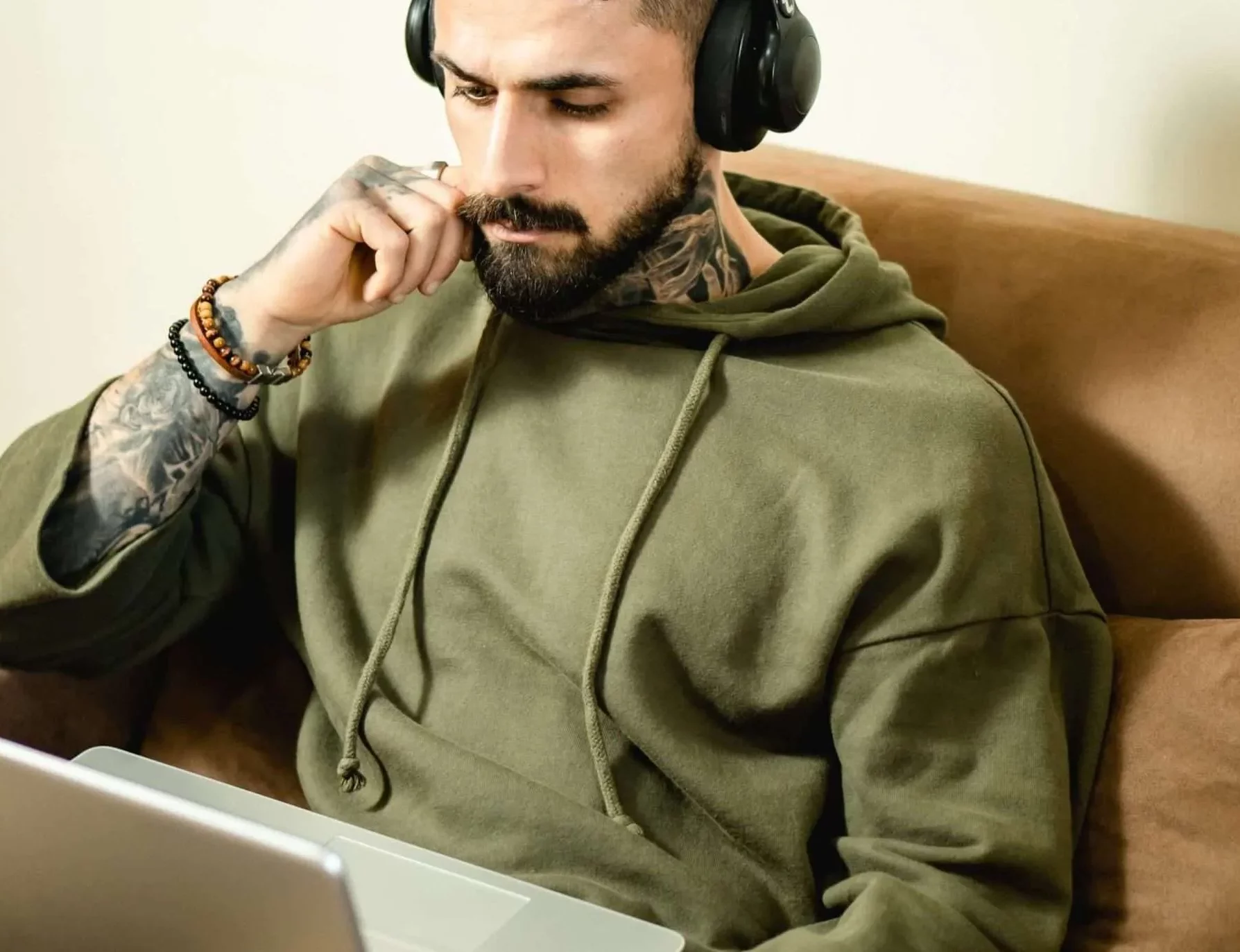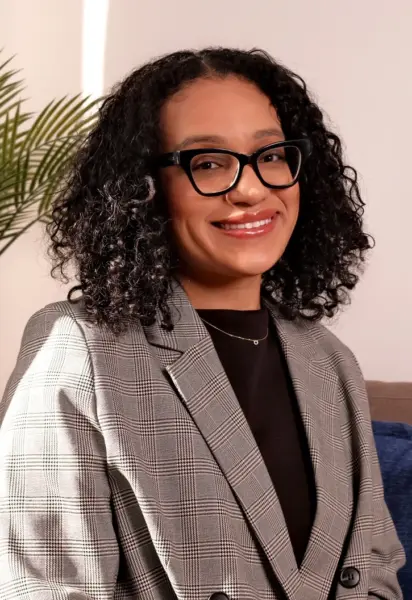Polyvagal Theory:
8 Co-Regulation Skills
For Healthy Relationships

By applying the principles of the Polyvagal Theory in co-regulation, we can better navigate the complex challenges commonly experienced in relationships. It allows us to understand and respond to our emotional states and those of others with greater empathy and effectiveness, fostering deeper connections and aiding in the healing journey.
The Impact of Trauma on Co-Regulation & Relationships
Understanding Trauma
Trauma can be thought of as a psychological injury that disrupts our autonomic nervous system, the part of us that unconsciously controls bodily functions. This disruption can leave us in a heightened state of alert, making it challenging to relax and connect with others.
Survival Mode
When trauma keeps our autonomic nervous system in constant survival mode, it’s like having an alarm system that’s always on. This state can make it difficult to form safe and secure connections, as we’re perpetually prepared for danger.
Prolonged Impact on Healthy Relationships
The prolonged impact of trauma can ripple through our personal relationships and overall well-being. It can lead to feelings of isolation, difficulty in trusting others, and challenges in maintaining healthy relationships.
The Role of Safe Relationships
Safe, supportive relationships are instrumental in rewiring a nervous system affected by trauma. These relationships provide a foundation for trust and security, allowing for healing and growth.
Building Co-Regulated Relationships
Identifying Co-Regulating Partners
Foster environments where vulnerability is welcomed and respected. This could be a physical space or an emotional one, where open communication and emotional honesty are encouraged.
Creating Safe Spaces for Co-Regulation
Look for individuals who are empathetic, patient, and understanding. These are people who can sit with you in your emotions without judgment or discomfort.
Defining Co-Regulation through Polyvagal Theory
Co-regulation is the process by which our interactions with others help regulate our emotional and physiological states. It’s a mutual exchange of comfort, support, and understanding.
Biological Basis for Connection
Our biology is inherently wired for connection. The autonomic nervous system plays a crucial role in co-regulation, helping us attune to others’ emotional states and vice versa.
Practical Exercises for Co-Regulation
Shared Mindfulness
Engage in activities that encourage mindfulness, such as meditation, yoga, or even a simple walk in nature. Doing these activities together helps both individuals become present in the moment, fostering a sense of joint focus and tranquility.
Physical Connection
Simple gestures like holding hands, hugging, or a gentle touch can be incredibly powerful. These actions release oxytocin, often referred to as the ‘love hormone,’ which can create a sense of trust and bonding.
Mutual Support Tasks
Engage in tasks that require teamwork, such as assembling furniture or planning an event. These tasks necessitate communication, problem-solving together, and reliance on each other’s strengths
Eye Contact Exercise
Maintaining gentle eye contact for a set period can deepen connection and understanding. This exercise, while simple, can be profoundly moving, fostering a sense of closeness and empathy.
Quiet Companionship
Sometimes, the most powerful connection comes from simply being together in silence. Sit with each other, sharing the same space without the pressure of conversation. This presence can offer immense comfort and a sense of safety.
Reflective Listening
Engage in conversations where one person speaks while the other listens attentively, then reflects back what they heard. This exercise enhances understanding and empathy, showing that both parties are seen and heard.
Synchronized Breathing
This exercise is a beautiful way to connect non-verbally. Sit face-to-face with a partner and focus on synchronizing your breathing. Inhale and exhale together, finding a shared rhythm. This practice can create a deep sense of connection and calm, aligning your emotional states.
Overcoming Challenges in Co-Regulation
Encouraging Personal Reflection for Effective Co-Regulation
Take a moment to pause and reflect on your own journey with connection, vulnerability and the role of trauma. Trauma, in its many forms, often leaves a hidden imprint on our lives, influencing how we interact with the world and those around us. Think about the times you’ve faced challenges, the moments of distress, and the instances where you felt overwhelmed. How have these experiences shaped your view of relationships?
Ask yourself:
- Who are the people that have helped me feel heard and understood?
- In what ways have my relationships contributed to my sense of safety and well-being?
- Are there instances where I felt my trauma was disregarded or misunderstood by others?
- How have I changed in the context of my relationships since experiencing trauma?
- What qualities do I now value in my relationships that perhaps I didn’t before?
- This reflection is not just about understanding the past; it’s about shaping your future.
Consider the role that your relationships have played in your healing process
Have there been people in your life who provided a sense of safety and understanding when you needed it most? Think about the conversations that sparked a turning point in your healing, or the silent presence of someone that offered comfort without words
Conversely, reflect on the times when relationships may have added to your struggles.
Were there moments where you felt misunderstood, judged, or alone? Understanding these dynamics can be crucial in recognizing patterns and making conscious choices about the people you surround yourself with.
Final Thoughts on Co-Regulating Skills for Relationships
If you’re dealing with trauma, remember the importance of professional guidance in building co-regulated relationships. You’re not alone on this journey.
Healing through connection and co-regulation is not just a possibility; it’s a pathway that many have walked successfully.
See What Our Clients Are Saying about Our Online Therapy in NJ
My therapist has been a crucial help in my management of my OCD.
Since working with her I've eliminated nearly all of my avoidance behaviors, while also decreasing my daily distress significantly, as well as improving my relationship dynamics. She's the first therapist I've worked with who always leaves me feeling hopeful and in good hands after every session.

I just feel like a brand new person!
I look forward to the day now and i know that my therapist is still there- in my corner! If you need help with the challenges that life gives you, please don’t hesitate to make an appointment!

No matter the reason why you or a loved one might seek therapy, I give my very highest recommendation.
My therapists wisdom, compassion and insights make her one of the best, most gifted therapists I've experienced.

I know I'm growing emotionally & I feel stronger & better with each session.
Simply the best, a stroke of luck to have stumbled upon this practice & Rebecca. I appreciate the empathy, dedication, directness & flexibility more than I can put into words.

I’ve felt a marked difference in my overall emotional state since I started therapy.
I love working with my therapist. She really takes the time to listen to me and help me piece together my needs and coping strategies.

My therapist is fantastic.
I am receiving wisdom and insight in a nurturing and judgment free setting.

My baseline anxiety has significantly decreased since I started therapy.
I handle stressful situations with more grace than I previously did. I feel that I am able to be a better mother to my children and more confidence worker in my career.

Therapy has helped me to feel more confidence in myself
... and my ability to regulate my own emotions. I have been better able to reflect on my own thoughts and feelings and use my own self-awareness to better handle stressful situations in the future.

I have felt more confident in my abilities as a parent and a professional.
I was hoping to gain more self-confidence and build up my self-esteem, but I have also strengthened my abilities in other areas along the way

FAQ's About Online Therapy in New Jersey
Where are you located? I need a therapist near me
We are fully online, which means that your therapy sessions will be help via video call on our HIPAA compliant Platform. Anyone in New Jersey can access our therapy services
How do I get started as a new client?
New Clients can reach out to us directly via call, text or email here:
Does my insurance cover my visits?
We provide”Courtesy Billing” for clients who are using the Out-of-network insurance benefits.
Our Insurance Page might answer your questions about your insurance information, cost and OON coverage.
What are out-of-network benefits?
Visits our FAQ About Insurance to learn more about OON coverage for mental health services. We can also check your benefits for you. When using OON benefits, patients typically pay the full cost of the treatment upfront and then file a claim with their insurance company for reimbursement.
Is Online Therapy As Effective As In-Person Therapy?
Online therapy is essentially face-to-face counseling, just conducted remotely. Studies show that tele-therapy is as effective as traditional counseling. Professional organizations and state governments recognize its benefits and have set regulations for it. However, like any therapy, its success in achieving your goals isn’t guaranteed. It’s important to discuss with your therapist whether tele-therapy is working for you.
How Should I Prepare for My First Session?
Showing up is all that you need to do! But if you really want to get the most out of session, it could help to take some time to think about what you want from therapy. It helps to write down your goals, questions you have or things that you feel are important to share.
Do you offer traditional talk therapy?
of course! though we have some unconventional therapy approaches, we are rooted in evidenced based practices. Talk therapy is a major player in the therapy room! See What we Treat and Integrative Services for more information
Is Virtual Counseling Suitable for Everyone?
Online therapy might not be as effective for individuals with chronic suicidal thoughts, severe trauma, significant mental health history, or those recently in intensive care. Such cases often benefit more from traditional, in-person counseling. We’ll help you decide if our online services are right for you during your intake and evaluation.
Can I Change Therapists If I'm Not Happy?
Yes, you can switch therapists to another provider within the practice, or we can provide you a referral if preferred. We want to ensure that your time and effort are well spent, and that you are getting the relief you need, that’s why we work collaboratively with each other in the practice, as well as outside therapists who we know and trust.
How Do I Know If Therapy Is Helping?
You should feel like you’re making progress. Signs it’s working include:
- Feeling comfortable talking to your therapist
- Your therapist respects boundaries
- You’re moving towards your goals
- You feel listened to
You’re doing better in life - Your self-esteem is getting better
What is your cancellation policy?
We ask that clients provide at least 24 hours notice in the event that they need to cancel to avoid the 50% cancellation fee. we understand that life happens and do our best to be flexible & reschedule.
What Geographic Areas Are Served?
Currently, we serve clients in New Jersey and are expanding to other states as telehealth laws evolve. While telehealth offers the convenience of attending sessions from anywhere, state laws require clients to be in-state during their session.
Is Online Therapy Easy to Use for Non-Tech-Savvy People?
Yes, it’s pretty simple to access sessions. You’ll need basic internet skills, such as opening and visiting the patient link sent to you via email. It’s similar to video chatting like Facetime or Zoom. We can also walk you through it on the phone the first time to ensure a strong connection
What Questions Should I Ask My New Therapist?
Feel free to ask anything. Some good questions are:
- How often will we meet?
- What do you specialize in?
- What experience do you have with my issue?
- What outcomes can I expect?
- How will I know I’m progressing?
- How long do you usually work with clients?
- How will we set my treatment goals?
What is the difference between associate therapists & fully licensed therapists?
Our Qualifications:
Our founder, Rebecca Sidoti, is a highly qualified, state-licensed therapist and supervisor with extensive training in anxiety related disorders and innovative treatment such as Ketamine Therapy. Mind by Design Counseling adheres to standards set by the our governing counseling boards.
To see each providers credentials, training and licenses, visit our “Meet the Therapists” Page to learn more.
- LAC/LSW are therapists who may practice clinical work under the supervision of a fully licensed therapist.
- LPC/LCSW are therapists who have completed the necessary clinical hours post-graduation under supervision and can practice clinical work independently.







